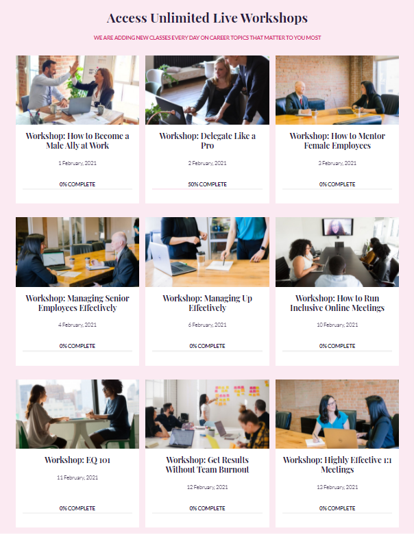Mentors are awesome!
It's a privilege to have someone in our lives who cares about our career advancement, is willing to invest their time, and be candid in their feedback when we mess up.
It's no secret that we really have to be lucky to find an incredible mentor! For the science majors: I always think of it like an enzyme-substrate reaction... a perfect fit! However, it does take meeting many different people to figure out a handful that you find relatable and, more importantly, trustworthy. The struggle is 100% more for early career professionals.
In my early days, I was so much more impressionable and prone to trusting senior leaders' advice blindly. Believe it or not, this has led to some major career faux pas, and I wish I had the skill set to screen what I hear and pick stuff that made sense to me, and discard the rest! Thankfully, after seven years of experience, I have that skill set now.
Reflecting on my early years, here are four pieces of advice I got from some mentors that, in hindsight, are absolutely mind-boggling. You'll see how some of this is inappropriate, some silly, and some downright rubbish.
So here it goes; a list of WORST career advice I got from mentors that women must not follow!
In celebration of International Women's Day, we are giving
one month of free access to PIVOT - our platform for virtual, instructor-led career training.
Get unlimited access to live professional development classes and learn how to communicate assertively, overcome imposter syndrome, lead effective virtual meetings, and delegate like a pro. Learn the skills you need to succeed at the workplace, when you need it.
Use code IWD100 to claim your free access from 15 March - 15 April.
Paraphrasing: Basically, fit in and look like everyone else (aka men) so you are taken seriously. Are you cringing yet? Try saying it out loud. Did that make you uncomfortable? Me too!
This advice truly deserves to be in the first place in the list of the worst advice I got from my mentors. I distinctly remember my first day of work at my first job. I had an excellent day meeting my team, and my head was in the clouds feeling happy about this incredible opportunity. The last thing I did that day was going to an ERG (Employee Resource Group) event, and I heard a senior female leader say to a relatively large group of early-career women, "When invited to an important meeting, wear pants and avoid pink".
Do you know what's worse? I believed it to be accurate and practiced it through and through. I thought the only way to be successful was to fit in and conform.
One day (a couple of years later), I saw the President of my company walk into a town hall meeting with hundreds of employees in a bright pink suit. She was totally rocking it, delivered an excellent presentation ("despite her outfit"!), and handled the Q&A session like a total boss woman! What a revelation. I learned my lesson!
Now, whenever I have an important presentation, I don't care what color my clothes are or if I'm wearing a pant or a skirt. I wear the outfit that makes me feel my most confident self.
One of my best friends is Anusha. When we were kids, my teacher thought she was a golden child (she still is! :-) ) and occasionally said to me, "Priya, why can't you be like Anusha?" I hated that teacher. Imagine being told to be like someone else and forget who you are! Terrible! Even worse - a generalization to ignore your entire identity and act like the opposite gender. I think I've said enough.
I'm just going to go on a limb and say it: A woman doesn't need to lead like a man, and a man doesn't need to lead like a woman. It's not a gender competition! We need to lead like a great leader, imbibing the necessary leadership attributes without conforming to prescribed gender norms. More simply put: get the job done, the best possible way!
You are in a meeting. What are the typical small talk topics before the meeting kicks off? Weather, sports, weekend plans, and... family!
I can see where this advice comes from – perhaps, back in the day, women were not given opportunities due to the perception of not being available at work after having kids. However, I'm afraid if we keep feeding the beast, we are robbing the current and future generations of the equality we all deserve and demand.
When I have a challenging situation where the balance topples, I prefer to share freely with my team rather than hide it. It brings awareness. I avoided talking about my baby at work until about a year into motherhood. I finally realized that people I worked with didn't always know what I was juggling to get my job done.
I talk about my kids at work. I talk about parenthood at work. In fact, I take much pride in the fact that I am a parent of two and have a thriving career of my choice. One tangible benefit I have seen is that this candidness helps build camaraderie in the team. If I have something going on and need help with a project, I know someone in my team will step up and catch me from falling. And likewise, I'm here for anyone in my team when they need me. It breaks layers of inhibition and fosters excellent team dynamics.
Of course, nothing is ever perfect.
Can this transparency create biases or perceptions that may hinder my growth? Absolutely.
Am I worried about this perception? No.
I know this one is controversial! So many leaders and psychologists have talked about this as a key to being successful. In case you missed it, I have
another post where I talk about how I personally prefer honesty over faking it.
I wonder what the deeper intent here is:
Is it "internal" and faking it will trick you into feeling confident? OR
Is it "external" and pretending that you know everything will start to build your credibility while you ACTUALLY learn the thing?
In either case, I dumped this advice from my mentor and thought instead, "I will be my authentic self".
There is tremendous power in vulnerability, a thing great leaders are not afraid to show.
As I wrote this somewhat scathing post, I wondered what kind of experiences these mentors would have had that made them internalize this advice. Imagine the hardships they may have faced to not only learn what they did as a way to survive but also feel obliged to pass on to others. It made me very sad.
I consider ourselves lucky. We live in a time where there is significantly greater discussion around Inclusion & Diversity. I'm thankful to have a voice, a platform where I can be candid, and an audience that can imbibe this to form objective, unbiased opinions.
Allow me to reiterate: mentors are fantastic. We need them. But I now know that before I bring a trusted mentor into my life, I need to believe in myself. Because if I don't believe in myself, who else will?
Drag to resize
Priya is a chemical engineer by training. She received her bachelors degree in India and masters and PhD in the US. She has held a gamut of roles at ExxonMobil Upstream Research Company over the last 7 years including working in the lab, troubleshooting and designing for operations, building strategies for business development, software product management and teaching technical courses to early career engineers.
Priya has published over 10 scientific papers, holds 3 patents and has presented at over 20 technical conferences.
She is a mom of two young children and is constantly hustling to find that coveted personal life - work life balance! In addition to engineer and mom duties, she loves to read, write and watch movies.
Find her on LinkedIn here.
Drag to resize
In celebration of International Women's Day, we are giving
one month of free access to PIVOT - our platform for virtual, instructor-led career training.
Get unlimited access to live professional development classes and learn how to communicate assertively, overcome imposter syndrome, lead effective virtual meetings, and delegate like a pro. Learn the skills you need to succeed at the workplace, when you need it.
Use code IWD100 to claim your free access from 15 March - 15 April.




